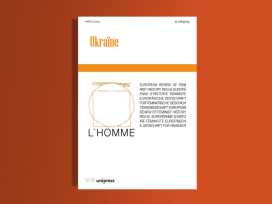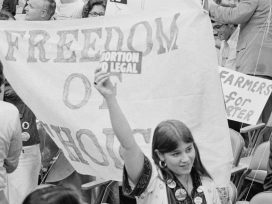In October, the Bosnian media revealed a sensational piece of news: the Hollywood movie star Angelina Jolie would be directing a film about Bosnia! It was to be a love story, filmed in Bosnia, using local actors.
But sensation soon turned to scandal: the Bosnian ministry of culture was refusing Jolie and her film-crew permission to film in the Federation of Bosnia and Herzegovina. The cultural minister Gavrilo Grahovac said he had taken the decision following complaints from the Association of Women Victims of War representing women victims of the mass rapes during the Bosnian war.
It is hard to say what the bigger scandal was: the banning of the filming or Grahovac’s comments. He regretted, he said, not being able to prohibit the film outright, because of the offence it causes to the huge number of victims (it is estimated that between 20 000 and 50 000 Bosniak women were raped during the war). Nobody, by the way, had read the script – neither Grahovac nor the women who demanded his decision. Allegedly, a victim falls in love with a rapist.
All sympathy for the victims and their feelings aside, there can be no other name for their demand but censorship. What right, apart from the moral one, could these women have had for insisting that filming be banned? Can any call for censorship be justified except one based on an offence proscribed by law? Even then, it is for a public attorney and not a minister of culture to react. Imagine a situation in which representatives of Jewish Holocaust survivors suggest to a minister of culture to disapprove of a film in which a Jewish victim falls in love with a German perpetrator. The mere thought seems absurd.
 There is no doubt that the mass rape of Bosniak women is an extremely delicate issue. This does not mean it cannot be treated at all, however. Jasmila Zbanic’s film Grbavica: The Land of My Dreams, winner of the Golden Bear at the Berlin Film Festival in 2006, brilliantly told the story of a woman forced to tell her teenage daughter that she is the child of such a rape. The problem in Jolie’s case is that Bosniaks, like many other victims, do not like it when foreigners interfere with “their war”. It is not new that victims consider themselves to be the most competent judges in matters of their own suffering – if not in an artistic sense, than in a moral one. Foreigners are often accused of “exploiting” suffering for profit.
There is no doubt that the mass rape of Bosniak women is an extremely delicate issue. This does not mean it cannot be treated at all, however. Jasmila Zbanic’s film Grbavica: The Land of My Dreams, winner of the Golden Bear at the Berlin Film Festival in 2006, brilliantly told the story of a woman forced to tell her teenage daughter that she is the child of such a rape. The problem in Jolie’s case is that Bosniaks, like many other victims, do not like it when foreigners interfere with “their war”. It is not new that victims consider themselves to be the most competent judges in matters of their own suffering – if not in an artistic sense, than in a moral one. Foreigners are often accused of “exploiting” suffering for profit.
Unfortunately, many works of art about the war in Bosnia have been poor or inadequate representations of the suffering of Bosnians. Having tragic experiences is no guarantee that one can express them artistically. On the contrary, studies in the psychology of victims shows that they are rarely capable of describing what they were subjected to, and even less so in the form of art. It may be that, in her directorial debut, Jolie ends up making a terrible, insensitive film. But may be she won’t. A demand to censor a film that has not been made yet makes no sense at all.
Let us also not forget another important fact, linked to the mass rapes: it was because raped women were willing to talk to journalists, representatives of international humanitarian organizations, investigators and judges (in The Hague), and because mass rape in Bosnia and Rwanda received international publicity, that in 2002 it was recognized as a weapon of “ethnic cleansing” and a crime against humanity.
To complicate matters further, the central argument of the women – that they are offended by the idea that one of them might have fallen in love with her rapist and a torturer – seems highly problematic to me. Why? Because it demonstrates that, for them, the perpetrators were and remain monsters and animals, attributes often used for war criminals. In order to rape the women (or to torture or kill them), the perpetrators had to degrade them, to deprive them of their human characteristics, to reduce them to non-humans, to “garbage” as they were called. By denying humanity to the perpetrators, the victims are doing exactly what the perpetrators did to them.
I am not claiming that the victims of rape should forget – that is very difficult. Like forgiving, forgetting is a highly individual act. But the dehumanization of perpetrators only contributes to a misunderstanding of the core problem: we all carry within ourselves the potential of both good and evil. In critical situations, there can be no assurance which side we will take. It is a very unpleasant feature of human beings. Yet, as paradoxical as it sounds, to dehumanize perpetrators leads us to justify their crimes: they are not responsible because they are not humans, but simply animals.
In all fairness, there is another, very serious problem facing women victims of the war, a different kind of humiliation inflicted not by Angelina Jolie, but by their own communities. For the victims of rape, returning to normal life was not easy. Until very recently, they did not even possess legal status as war victims. This meant they received no pensions or other social benefits, compounding the “shame” they already had to suffer. The fact that the law failed to recognize them as victims surfaced only after Zbanic released her film and organized an international petition. Finally, their legal status was changed (except in the Republika Srpska).
Would it not be better, then, to deal with the real problems and frustrations of women victims in Bosnia, rather than invented ones? Surely they suffer more from being branded and rejected in their community, through no guilt of their own, than from an alleged love story by this or that Hollywood star.
The controversy in Bosnia about the decision of the minister ban went on for a month. By the time the ban was lifted, it was too late. Angelina Jolie had decided to film in Budapest.

 There is no doubt that the mass rape of Bosniak women is an extremely delicate issue. This does not mean it cannot be treated at all, however. Jasmila Zbanic’s film Grbavica: The Land of My Dreams, winner of the Golden Bear at the Berlin Film Festival in 2006, brilliantly told the story of a woman forced to tell her teenage daughter that she is the child of such a rape. The problem in Jolie’s case is that Bosniaks, like many other victims, do not like it when foreigners interfere with “their war”. It is not new that victims consider themselves to be the most competent judges in matters of their own suffering – if not in an artistic sense, than in a moral one. Foreigners are often accused of “exploiting” suffering for profit.
There is no doubt that the mass rape of Bosniak women is an extremely delicate issue. This does not mean it cannot be treated at all, however. Jasmila Zbanic’s film Grbavica: The Land of My Dreams, winner of the Golden Bear at the Berlin Film Festival in 2006, brilliantly told the story of a woman forced to tell her teenage daughter that she is the child of such a rape. The problem in Jolie’s case is that Bosniaks, like many other victims, do not like it when foreigners interfere with “their war”. It is not new that victims consider themselves to be the most competent judges in matters of their own suffering – if not in an artistic sense, than in a moral one. Foreigners are often accused of “exploiting” suffering for profit.




